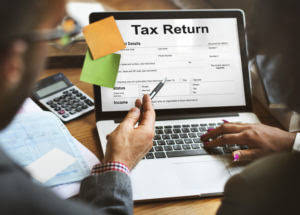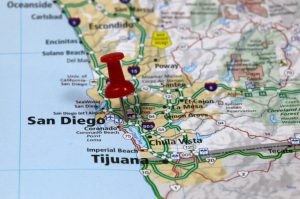
Over 1.8 million professionals use CFI to learn accounting, financial analysis, modeling and more. Start with a free account to explore 20+ always-free courses and hundreds of finance templates and cheat sheets. Ordinary shares have a declared “par value” or face value in many countries; however, this is a technicality and is frequently fixed at a few cents per share. An administrator will be appointed in the event of an insolvent liquidation to liquidate the company’s assets, allocate the cash to the lenders, and shut down the operation. A nominee director; is a director nominated to fill a casual vacancy in any director’s office who was appointed at a general meeting of a public business.
Institutional Investors

Both common stock and preferred stock have pros and cons for investors to consider. Eddie’s tour of Pear Products gave him firsthand knowledge about how shareholders, managers, board of directors and employees all have separate powers that act as checks and balances within the organization. The board of directors is focused on protecting the rights of the shareholders. They have the power to fire top executives and ensure the development of excellent replacements. Eddie’s objective for purchasing a share of Pear Products was to make a profit. He explained to the class that there are four specific types of stockholder objectives that include short-term profit, long-term profit, strategic influence and minimizing of risk.
- Examples are hypothetical, and we encourage you to seek personalized advice from qualified professionals regarding specific investment issues.
- The first-ever common stock was issued in 1602 by the Dutch East India Company and traded on the Amsterdam Stock Exchange.
- The growth of low-cost target-date mutual funds, exchange-traded funds, and robo-advisors are partly responsible for this surge in popularity.
- The first type is a common stockholder in which a shareholder purchases common stock and is able to vote to elect the board of directors.
- Debt investments may be as loans extended to other individuals or firms, or in the form of purchasing bonds issued by governments or corporations which pay interest in the form of coupons.
- The adoption of financial accounts, the nomination or confirmation of directors and auditors, and other obligatory agenda items are discussed during the meeting.
The Role and Rights of a Shareholder
However, creditors, bondholders, and preferred stockholders have precedence over common stockholders, who may be left with nothing after all the debts are paid. Common stock represents a residual ownership stake in a company, the right to claim any other corporate assets after all other financial obligations have been met. Assets include what the company owns or is owed, such as its property, equipment, cash reserves, and accounts receivable. On the other side of the ledger are liabilities, which are what the company owes. If a company is healthy, the total assets will be larger than the total liabilities. The residual amount left to the owners is known as shareholders’ equity and is represented by a company’s shares.
Angel Investors
Debt investments may be as loans extended to other individuals or firms, or in the form of purchasing bonds issued by governments or corporations which pay interest in the form of coupons. Eddie did share with his class that he is ranked unfortunately behind preferred stockholders by Pear Products. Preferred stockholders receive a steady dividend before a common stockholder. This worries Eddie because if Pear Products has financial difficulties in the future, then he will not get his money back until preferred stockholders receive their money first.
- Furthermore, the dividends paid to preferred stockholders are fixed even if profits decline.
- Normally, these dividends are conditional on obtaining positive results.
- The shareholder, as already mentioned, is a part-owner of the company and is entitled to privileges such as receiving profits and exercising control over the management of the company.
- A shareholder is the individual or institution who owns one or more shares of a company, and this gives them the status of owner and partner with powers, rights, and benefits.
- The board of directors is focused on protecting the rights of the shareholders.
Initial Public Offerings
Characters like Warren Buffet, Deirdre O’Brien, John Donahoe, and Jeff Bezos are some of the best examples of stockholders. The performance of the common stock is ultimately what determines how valuable convertible common stocks are. Normally, at https://www.bookstime.com/ the stockholder’s request, convertible preferred shares are swapped in this manner. The firm’s board may choose to invest all of the extra money back into the company, in which case any remaining earnings would not be eligible for dividends.
A personal investor invests their own capital, usually in stocks, bonds, mutual funds, and exchange-traded funds (ETFs). Personal investors are not professional investors but rather those seeking higher returns than simple investment vehicles, like certificates of deposit or savings accounts. Investors typically generate returns by deploying capital as either equity or debt investments. Equity investments entail ownership stakes in the form of company stock that may pay dividends in addition to generating capital gains.
- It is important to note that if you are a shareholder, any gains or losses you make when selling shares need to be reported on your personal income tax return.
- As noted above, a shareholder is an entity that owns one or more shares in a company’s stock or mutual fund.
- When you own stock in a company, you are called a shareholder because you share in the company’s profits.
- By understanding the rights and types of shareholders, you can navigate the investment landscape more effectively.
- Preferred stocks are less dilutive of company ownership since they do not come with voting rights.
Shareholder Theory
Eddie explains that although preferred stockholders are first in line to get paid, they cannot vote on any company issues. A shareholder is a person, company, or institution that owns at least one share of a company’s stock or in a mutual fund. Shareholders essentially own the company, which comes with certain rights and responsibilities.
How to Invest in Common Stock
Should a company not have enough money to pay all stockholders dividends, preferred stockholders have priority over common stockholders and get paid first. For holders of cumulative preferred stock, any skipped dividend payments accumulate as “dividends in arrears” and must be paid before dividends are issued to common stockholder definition economics stockholders. Both common and preferred stockholders can receive dividends from a company. However, preferred stock dividends are specified in advance based on the share’s par or face value and the dividend rate of the stock. Businesses can choose whether or not and how much to pay in dividends to common stockholders.
- A minority shareholder holds less than fifty percent of a corporation’s shares of stock and, therefore, less power.
- Creditors and preferred shareholders receive a fixed payment from the corporation, so the common shareholders could benefit if the business generates significant profit.
- The stocks they buy are part of their portfolio and do not represent those of any organization.
- A majority shareholder owns and controls more than 50% of a company’s outstanding shares.
- Eddie’s project will provide you the definition of a stockholder and identify the kinds of stockholders, their objectives, the separation of powers and their legal rights and protection.
Shareholders have the right to exercise a vote and to affect the management of a company. Shareholders are owners of the company, but they are not liable for the company’s debts. For private companies, sole proprietorships, and partnerships, the owners are liable for the company’s debts. Another type of corporation with different tax treatment is an S corporation.
